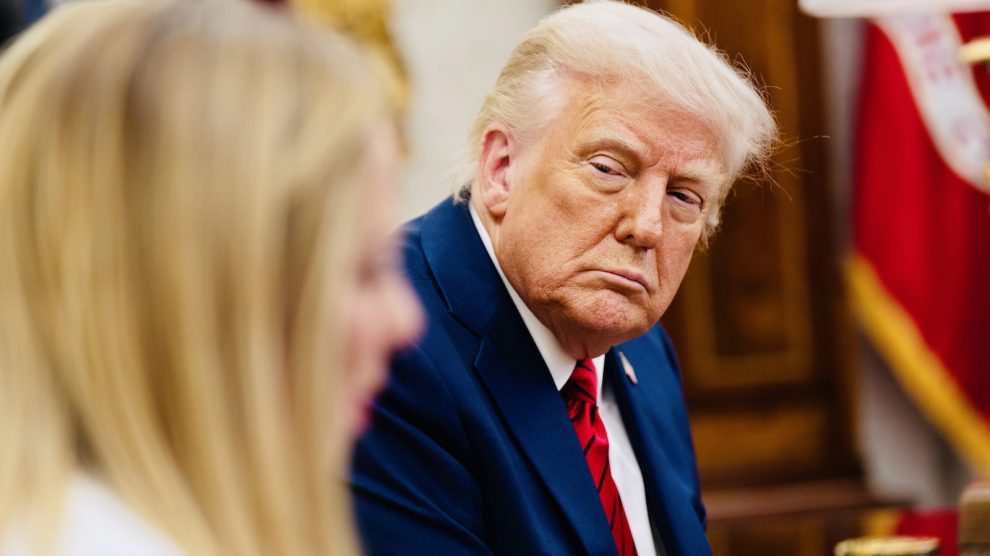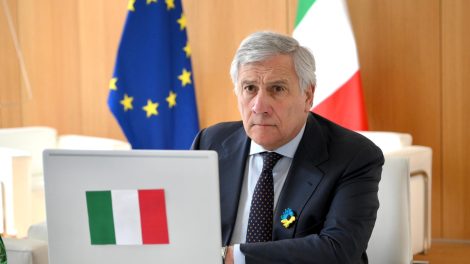Decoding the news. Prime Minister Giorgia Meloni has reaffirmed her government’s support for the EU-led negotiations with Washington.
- In an official statement on X, she said: “The government is in close contact with the European Commission and all stakeholders involved in the tariff negotiations. A trade war within the West would weaken us all despite the global challenges we must confront together.”
- “Europe has the economic and financial strength to assert its position and secure a fair and reasonable agreement. Italy will do its part. As always,” she added.
“Calma e gesso”. Her stance is to defend Europe’s economic interests with determination, while avoiding retaliatory moves that could escalate tensions. In contrast, France has pushed for a harder line response, advocating a firmer stance on countermeasures.
- Italian officials argue that reciprocal tariffs would signal weakness, not strength, particularly as global competitors look to exploit transatlantic fractures.
- According to government sources, Italy’s guiding principle is one of measured calm and strategic patience — or as they put it, “calma e gesso” – and “working for a deal.”
The European angle. Talks between the EU and the U.S. were already advanced, with a draft framework envisaging 10% baseline tariffs in key sectors like automotive, pharmaceuticals, and aerospace.
Trump’s move didn’t derail the dialogue entirely. The timing and wording suggest there’s still space for a negotiated outcome, provided the EU remains united.
Speaking Sunday, Commission President Ursula von der Leyen confirmed the dual-track strategy: “We will therefore also extend the suspension of our countermeasures until early August and, at the same time, continue to prepare further countermeasures so we are always prepared.”
Zoom in: Rome vs populist narratives. Populist and anti-EU forces in Italy and Europe have used the tariff announcement to attack Brussels.
- Their criticism portrays the EU as ineffective. This is partly true — the EU can appear bureaucratic and geopolitically sluggish — but it also echoes narratives often amplified by Moscow and Beijing.
- Across the continent, similar rhetoric is being used to fracture Western unity, overlooking the EU trade policy’s complex and collective nature.
The Zampolli case. In an interview with Corriere della Sera, Paolo Zampolli, appointed by President Trump as special envoy for global partnerships, suggested that Italy should “make its own deal” with the U.S.
- But that’s legally impossible: under EU treaties, trade policy is an exclusive competence of the Union. Member states, including Italy, contribute through the Council but cannot negotiate bilateral trade agreements independently.
The expert’s take. “Italy’s position is consistent with its industrial interests. Prime Minister Meloni’s strategy appears the most politically appropriate in the current strategic context: seeking room for dialogue and tangible benefits for our companies, emphasising engagement rather than confrontation,” says Domenico Lombardi, professor at Luiss University in Rome and expert in international economics, speaking to our sister website Formiche.net.
- “But a European framework is needed. Italy cannot negotiate a separate trade deal with the United States. The real question is: what common strategy best serves Italian and European producers?”
What we’re watching. Meloni’s balancing act is crucial: she supports European unity, rejects anti-Brussels rhetoric, and maintains a pragmatic, friendly approach to Washington without inflaming tensions.
- The strategy aligns Italy with the von der Leyen Commission, reinforces Brussels’ negotiating position, and sends a message of cohesion and reliability to allies – while making clear to rivals seeking to fragment the transatlantic alliance that EU-U.S. relationship is here to stay.





